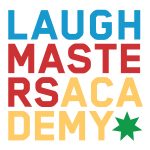Fail Joyfully And Five Great Life Lessons from Improv
This is a guest post from LMA Student Susan Zheng
Failing should be celebrated. It means you are closer to your goals than you were if you hadn’t tried.
In my very first improv class we were taught this through an imaginary ball toss. If you fall flat on your face and miss the ball, you win.
The sound of your team mates clapping and cheering like you’ve scored a grand slam makes you realise that your greatest fears can’t hold you back. It’s you who holds you back.
Making mistakes is not a hindrance to the journey, only part of the journey.
There is no fear of failure. Only failing joyfully.
Here are 5 more of life’s greatest lessons you can learn from Improv:
1. Motivation’s not coming. Do it anyway.
Motivation is garbage, as Mel Robbin’s says her book “The 5 Second Rule.”
You can’t rely on it to show up when you need it. There are times when you don’t feel inspired and you’re not ready.
Improv forces you to step into the spotlight and do it anyway. Trust that something wonderful is going to happen as long as you allow it.
The Science: During an Improv scene, your prefrontal cortex is activated. This is the part of your brain that helps you keep making decisions that put you in control.
As Mel Robbins says, “you develop what is called “authentic pride” — it’s the type of pride that is fuelled by personal confidence and success.”
Some of the most successful people in this world aren’t genius — they just take the risk and trust their intuition.
2. Ego Eradication
You may be the one on stage — but it’s about you.
It’s about how you and your scene partner are co-creating something beautiful together that is entirely spontaneous and will never be repeated.
Nothing is more humble and reassuring that saying “I got your back” to your scene partner before getting on stage.
Your ego could be sabotaging you from your goals and your relationships. Surrender your need for control you gain new perspectives.
3. You can’t control what happens to you, but you can always control how you respond.
Improv is like Cognitive Behavioural Therapy (CBT) in action. Everything is made up entirely on the spot so you learn very quickly that the way you respond to a situation is far more important than the event itself.
Change happens when you do. And it can happen in an instant.
4. Listening and Being Present
Most people don’t listen to understand, they listen to respond.
When you actively listen, you become a better negotiator, a better communicator and you have better quality relationships.
In fact, the best way to influence someone is to listen intently and solve their problems.
5. YES AND…
Saying ‘Yes and…’ to others means we appreciate their ideas and find ways to help it grow. It’s how an idea virus starts.
More importantly, practice saying ‘yes and…’ to yourself.
Giving your thoughts permission to nurtured and embrace whatever craziness comes your way.
Imagine if the time we spent in self-pity, self-doubt and negative self-talk was flipped.
What if we swapped apprehension for appreciation.
Swapped expectation with gratitude.
Swapped “I am owed” with “I am worthy”.
What if you forgot about all the reasons why it won’t work and focused on the one reasons why it will?
When you say yes to something small, you end up saying yes to infinite possibilities. This is further explained in this interview with my improv teacher.
The improv training I did with Laugh Masters Academy is just the beginning. Any form of training is empty without the courage and the discipline to execute.
So take bigger risks because no matter what happens — you can’t fail. You either win or you learn.
P.S.One thing that I forgot to mention in the interview with my improv teacher is how much I loved the activity we did at the end of our course. We formed a circle and we were asked to go around the room telling each person how much we value and appreciate their contributions.
This is one of the many reasons why in 8 weeks, I have built stronger connections with a group of people who started off as strangers, than I have with people I have known for 8 years.
